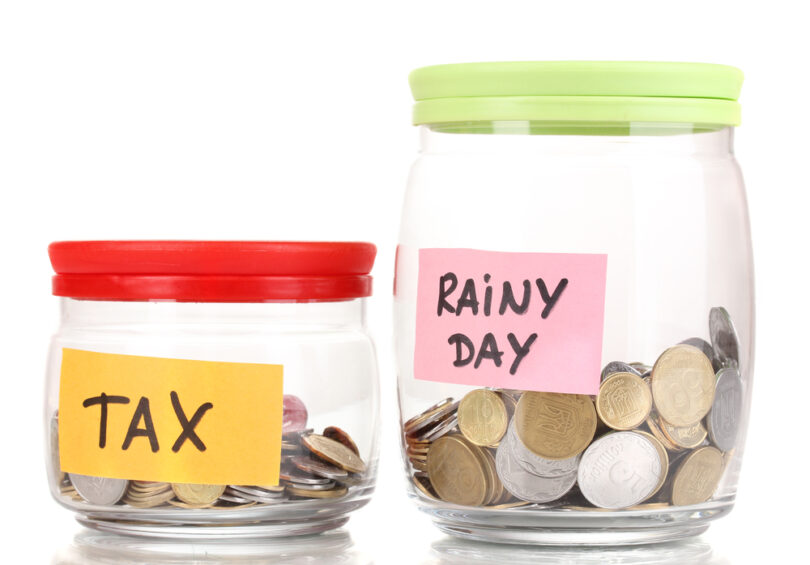Staying debt free can feel like an impossible dream. Whether you’re dealing with student loans, credit card debt, or unexpected bills, financial stress can quickly mount up. However, with the right strategy, living debt-free is more achievable than you think. If you want to save money, avoid financial pitfalls, and finally free yourself from debt, these five super simple tips can set you on the right path. Let’s break down the most effective strategies to remain financially free and enjoy life without the looming shadow of debt.
The Importance of Staying Debt Free
Before diving into these super simple tips, it’s essential to understand why staying debt free matters. Debt not only affects your wallet but also your overall well-being. It can lead to stress, limit your life choices, and prevent you from reaching important milestones, like buying a home or saving for retirement. Staying debt free means financial freedom, reduced stress, and greater flexibility in life’s decisions. It gives you control over your money, not the other way around.
Tip 1: Create and Stick to a Budget
The first step in staying debt free is to create a budget that works for you. Having a clear picture of your income and expenses will help you manage your money effectively. Budgeting isn’t about restricting yourself but about being aware of where your money is going and ensuring you’re spending in alignment with your financial goals.
- Track your expenses: Write down every purchase, big or small. This will help you identify areas where you can cut back.
- Set spending limits: Allocate a specific amount of money for categories like food, transportation, and entertainment.
- Prioritize saving: Include a category in your budget for savings. Treat savings like a mandatory expense, not an afterthought.
By sticking to your budget, you’ll be able to save money, avoid unnecessary spending, and ultimately stay debt free. Apps like Mint or You Need a Budget (YNAB) can be excellent tools to keep track of your spending and savings goals.
Tip 2: Build an Emergency Fund
Unexpected expenses can throw even the best budget off track. That’s where an emergency fund comes in handy. This fund is a safety net that prevents you from reaching for your credit card or taking out loans when life’s surprises happen.
- Start small: Aim to save at least $500 to cover minor emergencies. Over time, work toward saving three to six months’ worth of living expenses.
- Set automatic transfers: Make saving effortless by setting up automatic transfers to your emergency fund every time you get paid.
- Avoid dipping into it: Only use your emergency fund for true emergencies, such as medical bills, car repairs, or job loss.
Having this fund in place ensures you can handle financial hiccups without going into debt, making it one of the most crucial tools to staying debt free.
Tip 3: Pay Off Credit Card Balances in Full
One of the simplest ways to avoid debt is to pay off your credit card balances in full every month. Carrying a balance from month to month means paying interest, which can quickly add up and keep you trapped in a cycle of debt.
- Use credit cards responsibly: If possible, only charge what you can pay off immediately. This keeps your spending in check.
- Take advantage of rewards: Use credit cards for routine purchases like groceries or gas to earn rewards, but only if you’re confident you can pay the balance in full.
- Limit the number of credit cards: The fewer cards you have, the easier it is to manage your payments.
By consistently paying your balance, you’ll not only stay debt free but also boost your credit score, which can help with securing lower interest rates on mortgages or car loans in the future.
Tip 4: Live Below Your Means
Living below your means is one of the most powerful ways to avoid debt and save money. In essence, this means spending less than you earn and avoiding the temptation to upgrade your lifestyle just because you can.
- Resist lifestyle inflation: Just because you get a raise doesn’t mean you need a more expensive car or wardrobe. Increase your savings instead.
- Delay gratification: Instead of making impulse purchases, wait a few days. Often, you’ll realize you don’t need the item after all.
- Find joy in simple pleasures: Happiness doesn’t have to come with a price tag. Enjoy affordable activities like hiking, reading, or spending time with friends.
When you consistently live below your means, you’ll have more money to save and less need to borrow, keeping you on track to stay debt free.
Tip 5: Make Extra Payments on Loans
If you have existing loans, making extra payments can significantly reduce the amount of interest you pay over time and help you become debt free faster. Whether it’s a mortgage, car loan, or student debt, paying more than the minimum can save you thousands of dollars in interest.
- Round up your payments: If your monthly car loan payment is $265, round it up to $300. That extra bit goes a long way.
- Apply windfalls: Use tax refunds, bonuses, or any unexpected money to make lump-sum payments on your loans.
- Refinance high-interest loans: If your interest rates are high, consider refinancing to get a lower rate, which will save you money in the long term.
By tackling your debt more aggressively, you’ll not only get out of debt sooner but also save money that would otherwise go toward interest.
Staying Debt Free for Life
Following these simple tips to stay debt free is only part of the equation. Maintaining financial discipline requires long-term commitment and periodic reassessment of your financial situation. Continually review your budget, increase your savings goals, and adjust your spending habits as your life circumstances change.
Living debt free is not about perfection—it’s about progress. Every small step you take to save money and avoid debt adds up over time. Financial freedom is within reach if you’re willing to make mindful decisions and prioritize your future over fleeting desires.
Conclusion
Staying debt free doesn’t have to be complicated. By following these five super simple tips—budgeting, building an emergency fund, paying off credit card balances, living below your means, and making extra payments on loans—you can effectively manage your finances, save money, and live a life free from debt stress. Remember, the road to financial freedom is a marathon, not a sprint, and every step you take in the right direction counts.
FAQs
How can I start saving money if I’m already in debt?
Start by creating a budget and cutting unnecessary expenses. Even if you’re in debt, it’s important to save a small portion of your income, even $10 or $20 a week. Over time, this will build your financial cushion.
Is it possible to live completely debt free?
Yes, many people live debt free by following smart financial strategies, like budgeting, saving, and avoiding unnecessary debt. The key is to avoid borrowing money unless absolutely necessary and to live within or below your means.
How can I resist using credit cards for unnecessary purchases?
One way to resist the temptation is to remove saved card information from online accounts, making it harder to make impulse buys. Also, set spending limits for yourself and stick to a monthly budget that includes a specific amount for discretionary spending.
How much should I have in an emergency fund?
Ideally, an emergency fund should cover three to six months of living expenses. However, starting small with $500 to $1,000 is a great first step.
What’s the best way to pay off debt quickly?
The debt snowball method (paying off smaller debts first) and the debt avalanche method (paying off high-interest debts first) are two popular strategies. Both can be effective, but choose the one that fits your financial situation and motivates you the most.
Can refinancing really save me money on loans?
Yes, refinancing can lower your interest rates, which reduces the amount of interest you pay over the life of the loan. Be sure to shop around for the best rates and factor in any refinancing fees before making a decision.








Leave a Comment